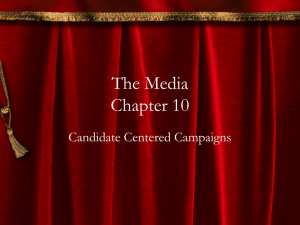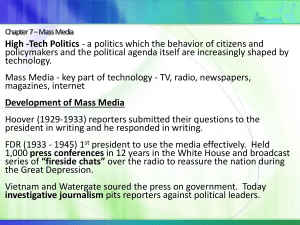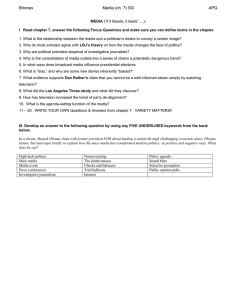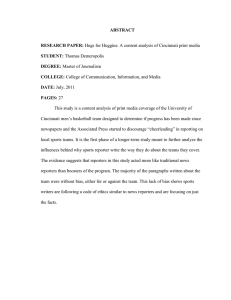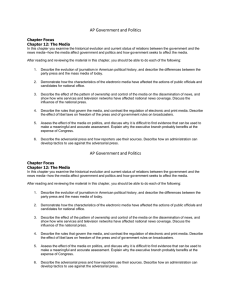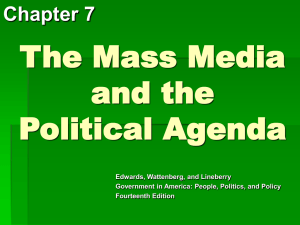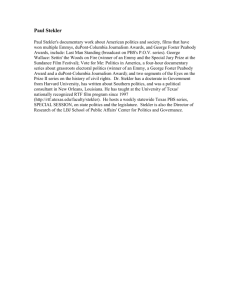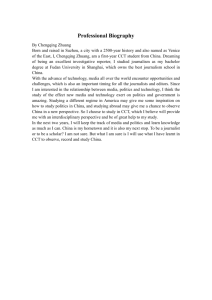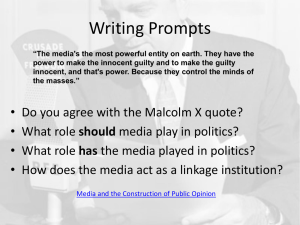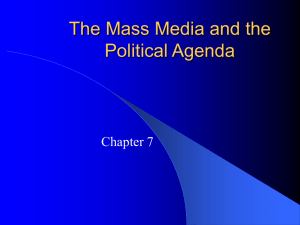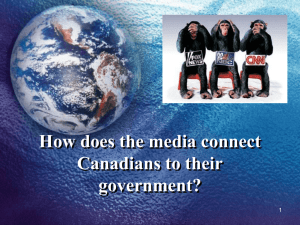American Government and Politics Today
advertisement
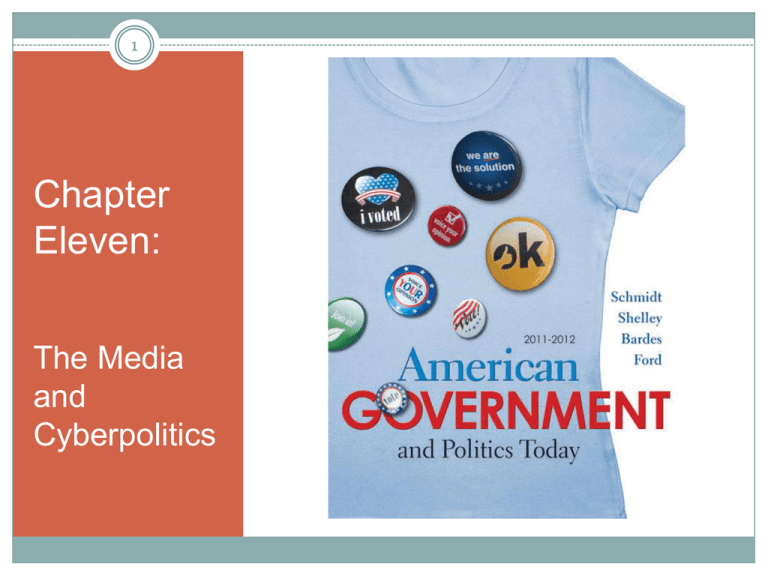
1 Chapter Eleven: The Media and Cyberpolitics Learning Objectives 2 Identify the major functions performed by the mass media in our society, including entertainment, reporting news, identifying public problems, socializing new generations, and providing a political forum. Learning Objectives 3 Trace the historical development of the press from the colonial period to modern electronic media: A partisan press. Development of mass-readership newspapers. The popular press and yellow journalism. The advent of radio and TV. The appearance of cable TV and the Internet. Learning Objectives 4 Discuss campaign advertising, “spin” and the presidential debates. Describe the relationship between the First Amendment protection of freedom of the press and government’s regulation of the media. Explain the media’s impact on politics, both on electoral politics and the investigative reporting of the government. Explain the ways that “new media” have influenced the functions performed by media. Evaluate different forms of alleged bias in the media. The Media’s Functions 5 Entertainment Reporting the News Identifying Public Problems Socializing a New Generation Providing a Political Forum Making Profits A History of the Media in the United States 6 The rise of the political press Development of mass-readership newspapers The popular press and yellow journalism The age of the electromagnetic signal A History of the Media in the United States 7 The Revolution in Electronic Media Cable TV—Narrowcasting Talk show politics and Internet broadcasting The Internet, blogging, and podcasting The Primacy of Television 8 Increase in News-Type Programming TV’s Influence on the Political Process The Media and Political Campaigns 9 Advertising Management of News Coverage Presidential Debates Political Campaigns and the Internet The Media and the Government 10 Media and the Presidency: Setting the Public Agenda Investigative Reporting Government Regulation of the Media 11 Government regulates the controlling ownership of the media. Government Regulation of the Media 12 Control of Content: Control of media broadcasting Control of media during 2nd Gulf War Control of media during war on terrorism Bias in the Media 13 Studies show that many in the media favor the political left. Media has been accused of racial profiling. Media is biased in its self-interest: ratings and making money. Web Links 14 Slate: publication offering analysis about politics, news, and culture: www.slate.com. MediaChannel: provides information and diverse perspectives, and includes links to news media around the world, as well as alternative media: www.mediachannel.org. The Pew Research Center for the People & the Press: offers up-to-date research on the public and its use of the media: www.peoplepress.org. What If…The Media Had to Reveal All Their Sources? 15 Many reporters’ sources are willing to talk on condition that they remain anonymous. If news sources were not protected: Reporters would lose sources of information. Public officials might become more corrupt. Lawsuits may increase. You Can Make a Difference: Being a Critical Consumer of the News 16 Few Americans take the time to become critical consumers of the news. To guarantee that your beliefs are truly your own and that they represent your values, you need to obtain accurate information from the media and avoid being swayed by subliminal appeals, loaded terms, or outright bias. You Can Make a Difference: Being a Critical Consumer of the News 17 Sources of news: Blogs Consider reading the news rather than watching it on TV. You Can Make a Difference: Being a Critical Consumer of the News 18 For more information on the media: National Association of Broadcasters: www.nab.org. Accuracy in Media (conservative group): www.aim.org. People for the American Way (a liberal group): www.pfaw.org.
